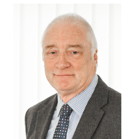Applying best-practice water treatment to commercial heating systems

Historically, commercial heating systems have not received the same level of water treatment as domestic installations. Ross Anderson of the ICOM Energy Association explains why a new best-practice guide should help remedy this situation
Water treatment for domestic heating systems has been very well defined and, in most cases, implemented effectively for many years. This has not been the case, however, for commercial wet heating systems. Consequently, the latter have often been subject to a range of problems related to fouling, bio-fouling, corrosion and limescale.
These problems result in a number of issues for the building operator/owner — ranging from poor performance in terms of both heating effectiveness and energy efficiency through to early failure of central plant and other system components. This means that inadequate (or non-existent) water treatment has significant financial implications for end users in terms of both capital and lifecycle costs — as well as environmental impact.
Moreover, this situation has been exacerbated by the changes that have occurred in commercial wet heating systems in recent years. Such systems now make use of a far wider range of materials than their predecessors; they also tend to operate with lower flow rates and higher pressure drops. These factors make commercial heating systems more vulnerable to damage and under-performance due to water quality issues, thereby increasing the requirement for effective water treatment.
One of the main problems in this respect has been the lack of any clear guidance as to what constitutes best practice in water treatment for commercial heating systems. Very often, early failures have been blamed on the boiler manufacturers, despite their having no influence over the water-treatment regime. Water treatment companies have sought to advise their customers, but such advice has lacked the authority of an independent best practice guide.
Furthermore, water treatment is often overlooked when the heating system is being designed. Ideally, water treatment should be considered from the early design stages of the project and the design intent then made clear to the installer.
There is also, perhaps, a tendency to think that water treatment is straightforward and just a matter of adding some chemicals every now and then. In fact, an effective water-treatment regime needs to take account of oxygen content, total hardness, conductivity, suspended solids, total metals, chlorides, settled sludge, sulphate, microbiological activity and pH. Given this complexity, it also makes sense to seek input from water treatment specialists.
After handover, such design intent should also be communicated effectively to either the maintenance contractor or end-user’s in-house maintenance teams. However, where the water treatment is sub-contracted (as is often the case) the contractor may change every couple of years, so it is easy for the detail to be lost.
This situation has now been addressed by boiler manufacturers and water-treatment companies coming together under the auspices of ICOM to publish the ‘Water treatment and conditioning of commercial heating systems guide’. Freely available as a download or hard copy, this 60-page guide is designed to cover every aspect of water treatment — in language that does not require specialist knowledge of water chemistry.
As such, its content ranges from design considerations for new systems through to analysing the water in existing systems and taking appropriate remedial measures where necessary.

Thus, it provides everyone involved in water treatment, from specifiers to maintenance contractors, a definitive guide to how they should identify the best water-treatment regime for a particular system and implement it effectively.
For example, it underlines the need to establish the system’s water volume to ensure correct dosage rates and to analyse the chemical make-up of the water to ensure the most appropriate corrective actions are taken.
Crucially, it also provides a step-by-step guide encompassing every area from initial cleaning and flushing through to ongoing treatment. It also covers issues such as methods of system fill and water types (including use of demineralised, reverse osmosis or softened water), pressurisation, de-aeration and filtration.
As Pete Mills, commercial technical operations manager at Bosch, noted at the time of the launch: ‘This should be seen as an important milestone for the industry, and we hope the standard is widely adopted within specifications, which should help to drive improvements in heating system reliability and efficiency.’
Mick Casey of Deep Blue Water added: ‘The guide is a well written and “hands-on” practical working document for engineers and specifiers alike. It is a very important step in providing a best-practice guide for those involved in water treatment of commercial heating systems. In doing so, it will also help to drive improvements in reliability and efficiency for end users whilst also reducing their lifecycle costs.’
Ross Anderson is director of the ICOM Energy Association.
A PDF or hard copy of the ‘Water treatment and conditioning of commercial heating systems guide’ can be requested by emailing info@icom.org.uk








